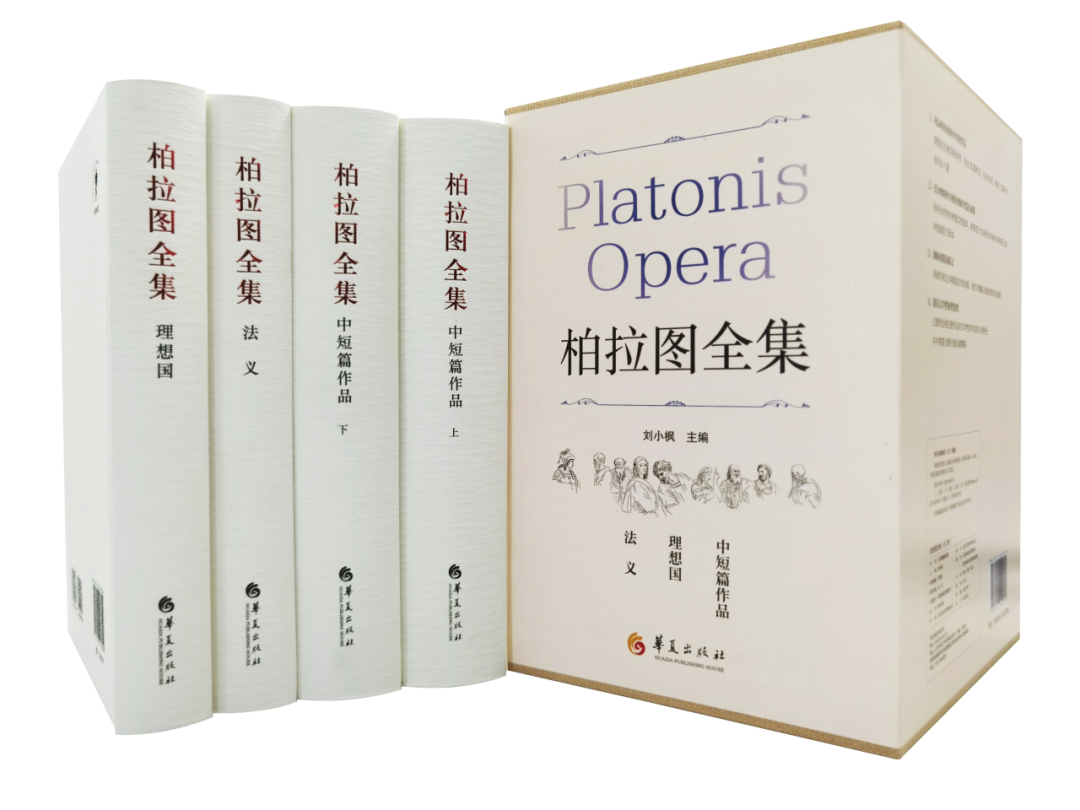

Trends
Collaborations
Meeting Minutes of the Seminar on Platonis Opera of Huaxia Publishing House
2023-01-26
Sourced from WeChat Official Account: Research in Classics
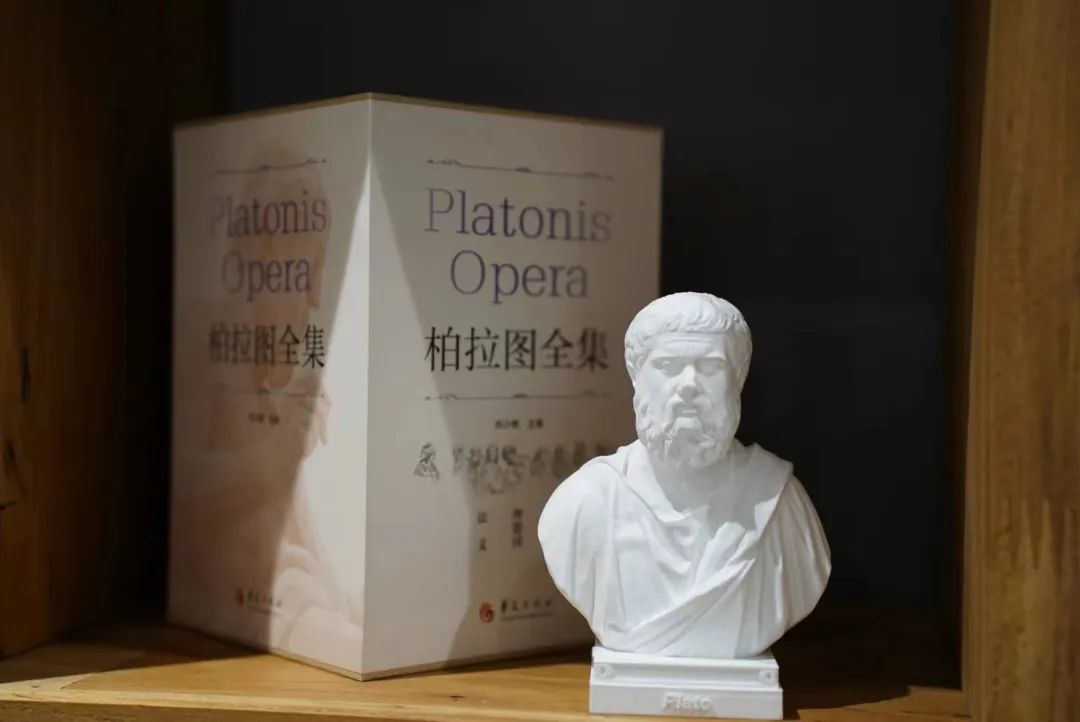
On January 5, 2024, the Translation and Research of Plato in China and the Seminar on Platonis Opera of Huaxia Publishing House were held in Beijing. Scholars at the seminar had in-depth discussions on the following three topics, including "the experience of translating Plato's works," "the paradigm of Plato research," and "experience of teaching Platonism."
Opening ceremony
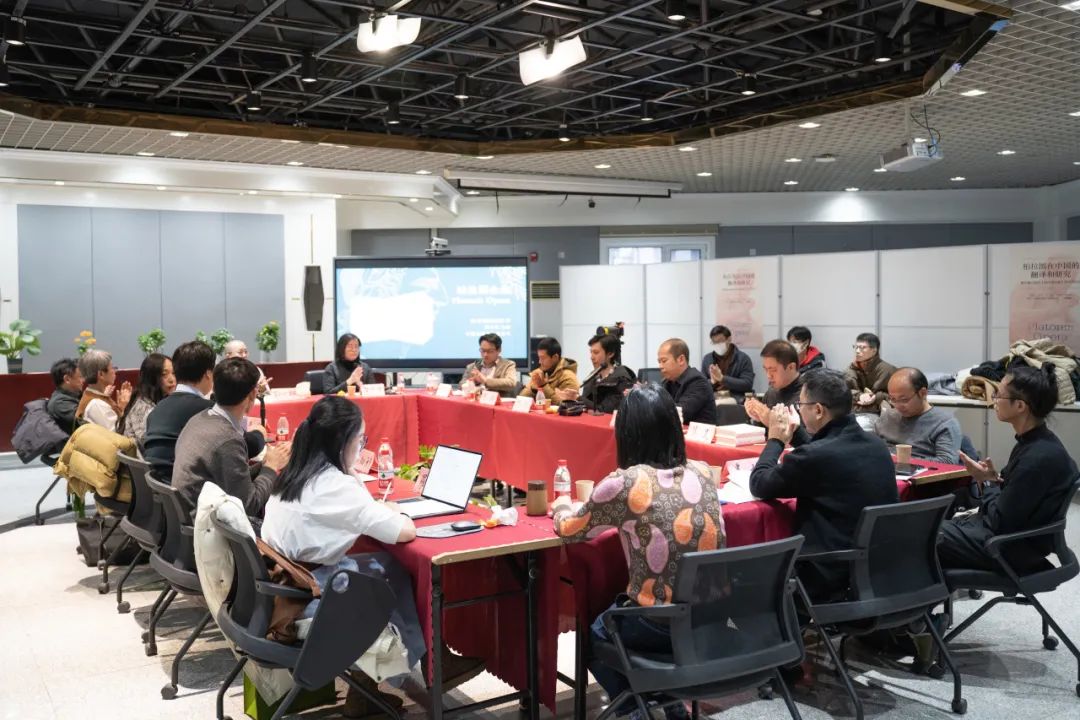
The seminar
Professor Liu Xiaofeng, chief editor of Platonis Opera, reviewed in his opening speech the challenges met and the achievements made over the past 20 years since the publication of the first set of book series "Classics and Interpretation." He also expressed his view about the significance of Plato to Chinese academic community and the academic significance of the translation and publication of Platonis Opera by Huaxia Publishing House.
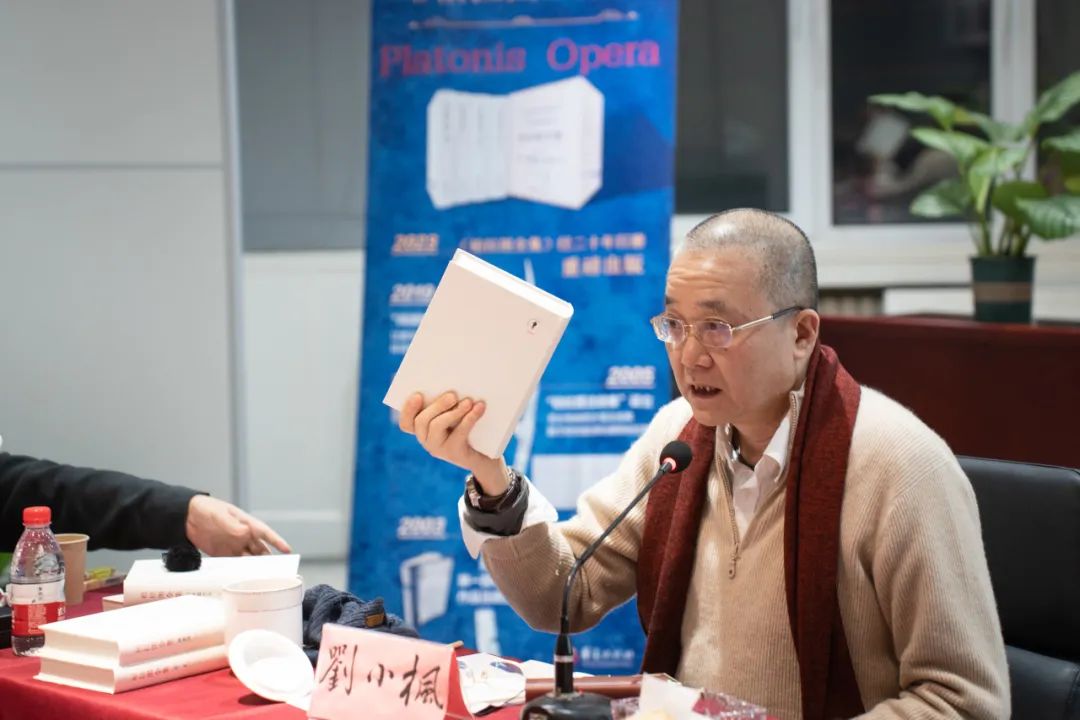
Liu Xiaofeng
First of all, Professor Liu pointed out that learning from the West has exerted a profound impact on the Chinese civilization and tradition. As Plato's works are the core classics of the Western civilization, their Chinese translation has an important significance on the improvement of the Chinese academic research. Plato's works bear distinctive literary features, as well as a broad range of and profound thoughts, so they have been favored by more and more readers. Then Professor Liu made his own comments on the translation style of Plato's works. He asserted that while complying with the original Greek to try to be accurate, the writing style of Plato's works should also be emphasized to highlight their operatic features so as to improve the readability of the translated Chinese version. Meanwhile, he thought that understanding Plato's works are the common cause of Chinese academic community, so the more the translated Chinese version, the better. Finally, taking the "Reading Plato" series of Huaxia Publishing House as an example, he stressed the importance of the academic quality in the popular translated version of Plato's works.
Subsequently, the seminar started its formal discussion, which was divided into the two topic discussions and free discussion hosted by Professor Peng Lei of the Renmin University of China and Research Fellow He Fangying of the Chinese Academy of Social Sciences (CASS), respectively.
Discussion I

Cheng Zhimin
Professor Cheng Zhimin of Hainan University pointed out that there are difficulties in positioning and understanding in the research of Plato. First, Plato's works are not written in an individual manner as those of ancient Chinese philosophers such as Lao Zi, Mo-tse and Xuncius, but all in the "as-I-heard" manner. As his works are encompassing, they can be called "scriptures." Any understanding of Plato's works as a single discipline is too narrow. Next, in the era when the style of the philosophical works like "On Nature" was prevalent, Plato adopted the writing style of polyphony, presenting a rich, three-dimensional and complete scenario. In Plato's world, everything has its own position and order. To correctly understand Plato, the key lies in one's vision and range of understanding. He held that different readers, and even the same reader at different time, will have different understandings of such rich texts of Plato's works. Only with enough modesty and reverence toward these texts and through taking the path of "interpreting classics with classics" can we hopefully enter Plato's world of thought.
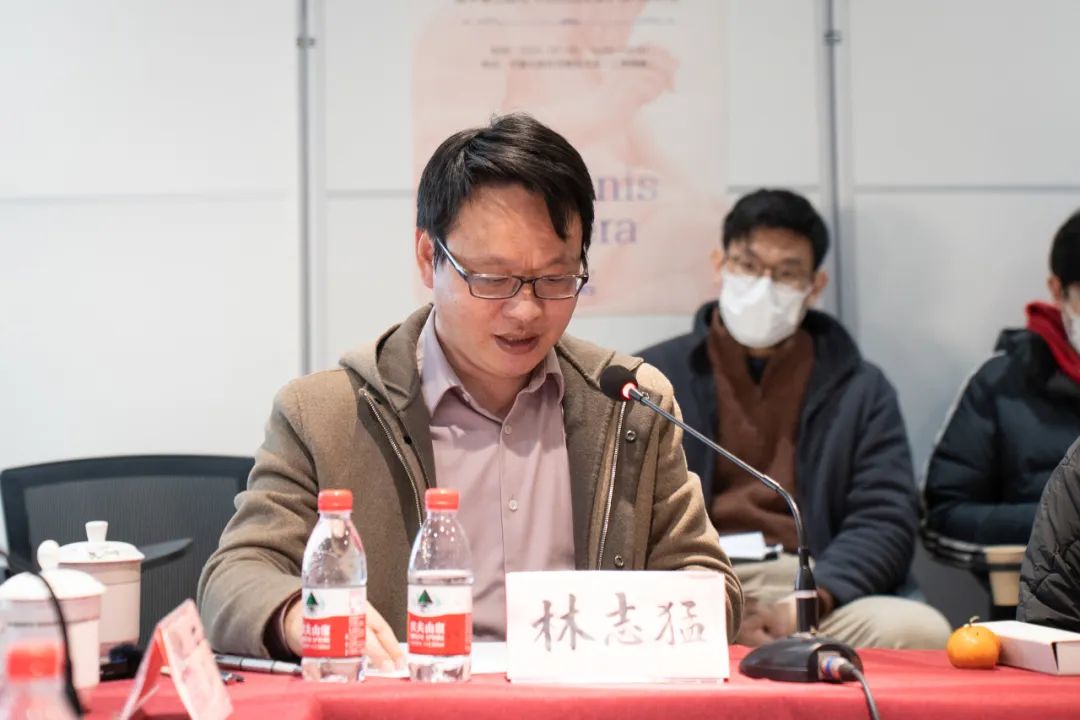
Lin Zhimeng
Professor Lin Zhimeng of Zhejiang University said that the Huaxia edition of Platonis Opera resulted from the solid research foundation and long-term accumulation. He stressed particularly that no matter it was philosophical contemplation, plot argument, tempting rhetoric, or cosmology, soul order, legal and political system, and moral ethics, Plato had all made incomparable deep thinking. It was just in this sense that Alfred North Whitehead would say that the whole Western philosophy was making footnotes for Plato. He thought that the translation and research of Plato's works deserve delving deeper and constant improving, and the works by Chinese scholars on their in-depth studies on Plato's colloquies should be promoted as soon as possible. He also held that Chinese scholars can dig deeper in terms of mutual learning between Plato's thought and the Chinese ideological tradition.
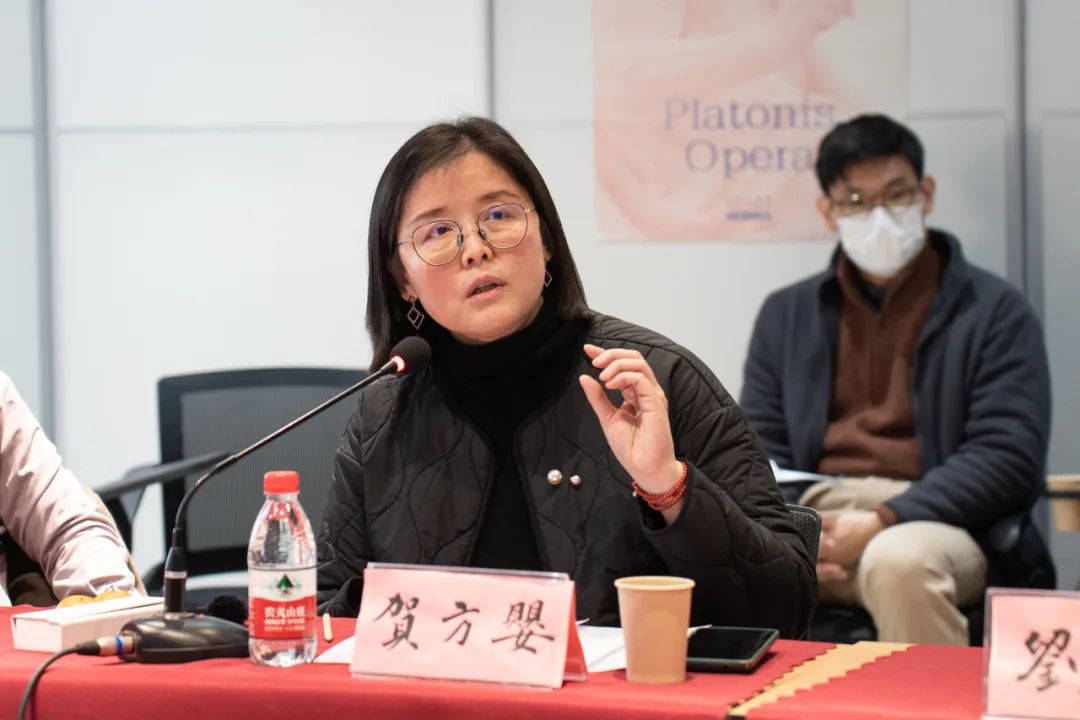
He Fangying
Research Fellow He Fangying of CASS said that she has fully realized how philosophers think problems in their souls from Plato's works. The Plato's dialogue actually presented the different faces of human soul, so reading his dialogue seems to walk through various cities of souls. She held that Plato's works are both dramatic and speculative, so truly rigorous research should not neglect any of these two features. She pointed out that teachers should encourage students majoring in classics to read more of Plato's dialogue, promote more professional classics education, edify the moral characters of the youth, and cultivate their vigorous, warm and generous modern characters.
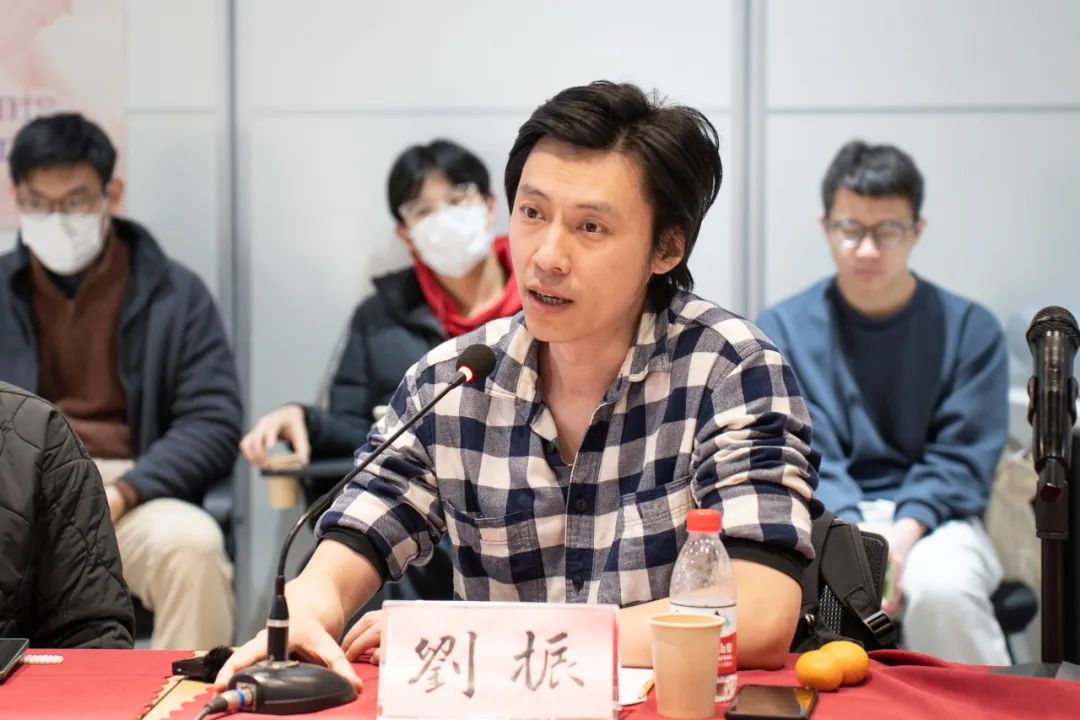
Liu Zhen
Associate Professor Liu Zhen of Yangzhou University said that the lasting value of Plato's thought is embodied in the qualities of his works on the thinking of basic human problems. To understand Plato's thinking, we need to pay enough attention to his works' feature in style and literature, which is also an important characteristic of Platonis Opera by Huaxia Publishing House, which is related to Leo Strauss' interpretation direction of Plato. In the early 20th century, the important interpreters such as Strauss and Jacob Klein all thought it urgent to get rid of the interpretative stereotype of Plato back then, resume the vitality of Plato's texts, and take texts themselves as the authority for understanding Plato. In fact, how to understand the feature of Plato's texts in form is related to how to understand Plato's views on some most important issues of human thought. The argument triggered by Karl Popper's explanation about Plato is a typical example in the 20th century. In this sense, a dynamic Plato text form will be of extremely high ideological and teaching values.
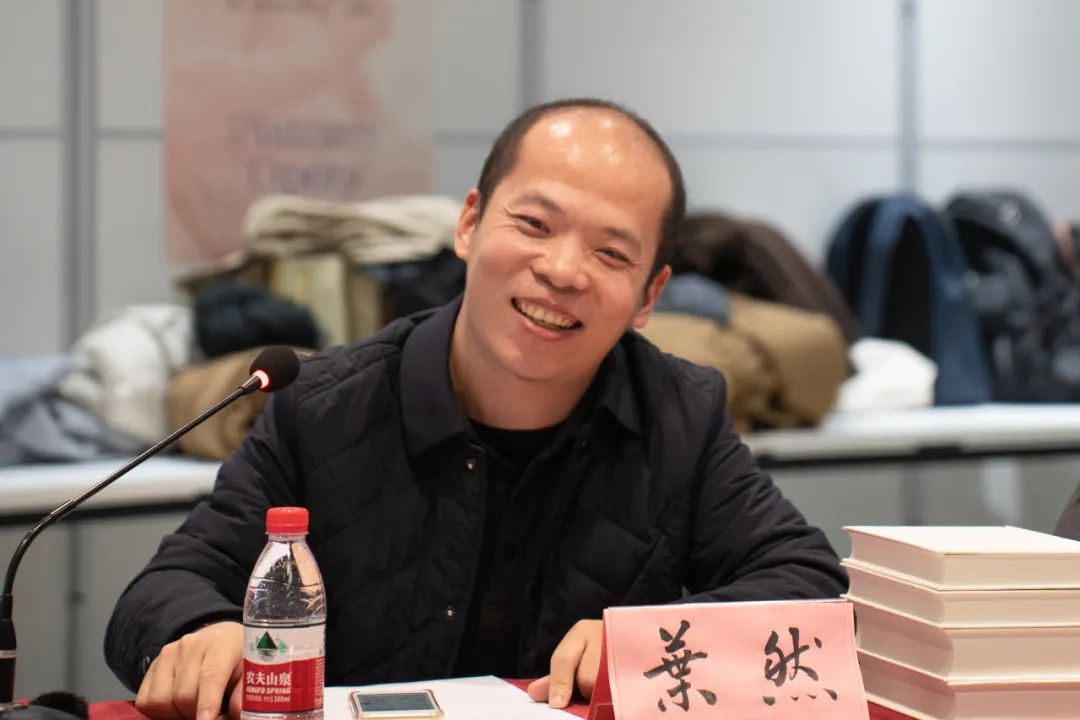
Ye Ran
Associate Professor Ye Ran of Henan University spoke of several problems in the translation of Plato's works from his own experience. For example, ancient Greek used more long nominative phrases than modern Western languages, so there are different ways of translation that need to be deeply understood. Some pronouns do not necessarily refer to the nominal words that appear earlier. When unifying the translation of some terminologies, we should "categorize and unify" the basic meaning of these words according to the author's intentions. According to his summary, on the one hand, sticking to the original grammatical structure is still of basic significance; on the other hand, many problems cannot only be solved by good grammar, so the best translator must be the one who understands the original works best.
Discussion II
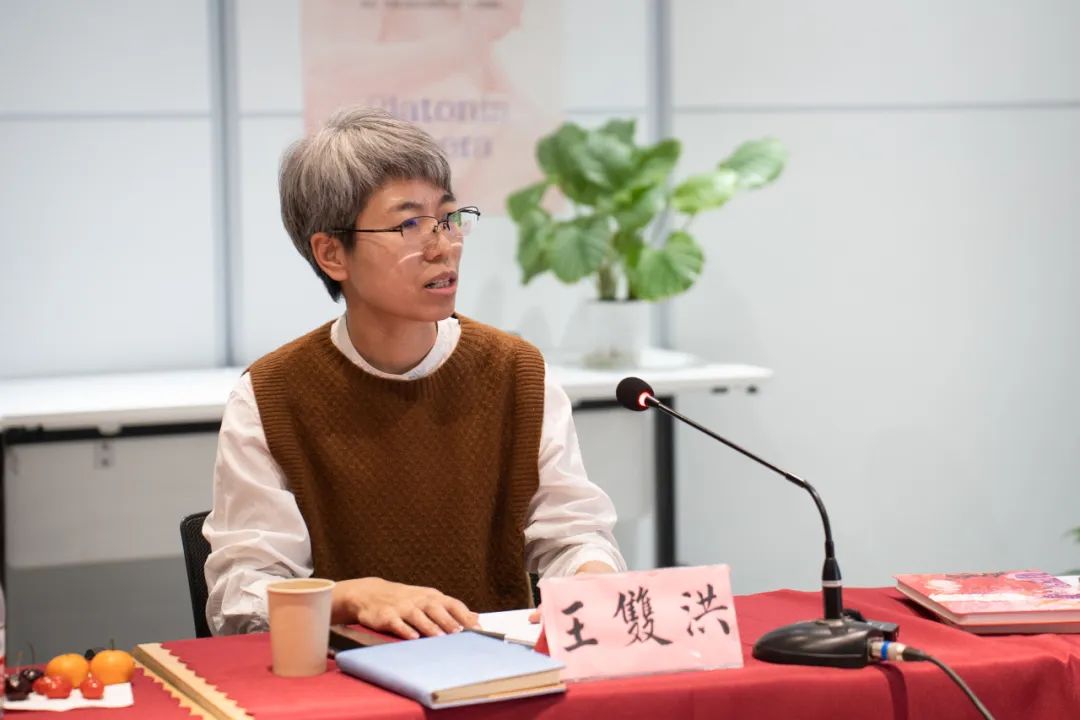
Wang Shuanghong
Research Fellow Wang Shuanghong of Beijing Academy of Social Sciences said that the translated version of Platonis Opera was started as early as 20 years ago. Quite a big part of its translators focused on only one dialogue, so they have laid a foundation of exegesis and research of Plato's works. The rationality in the practice back then of taking the translation and exegesis of Plato's works as part of the doctoral dissertation deserves justification now as the academic circle has a strong sense of categorization among literature, history and philosophy toward Plato's works, and every discipline tries to find its own disciplinary scope from his works, such as the literary and philosophical theories. The "Classics and Interpretation" book series has published a large number of translated versions and treatises of classical works, which are of immeasurable value and significance for us to re-understand the importance of Chinese and Western classics, break the disciplinary barrier, and focus on the presence of thoughts.
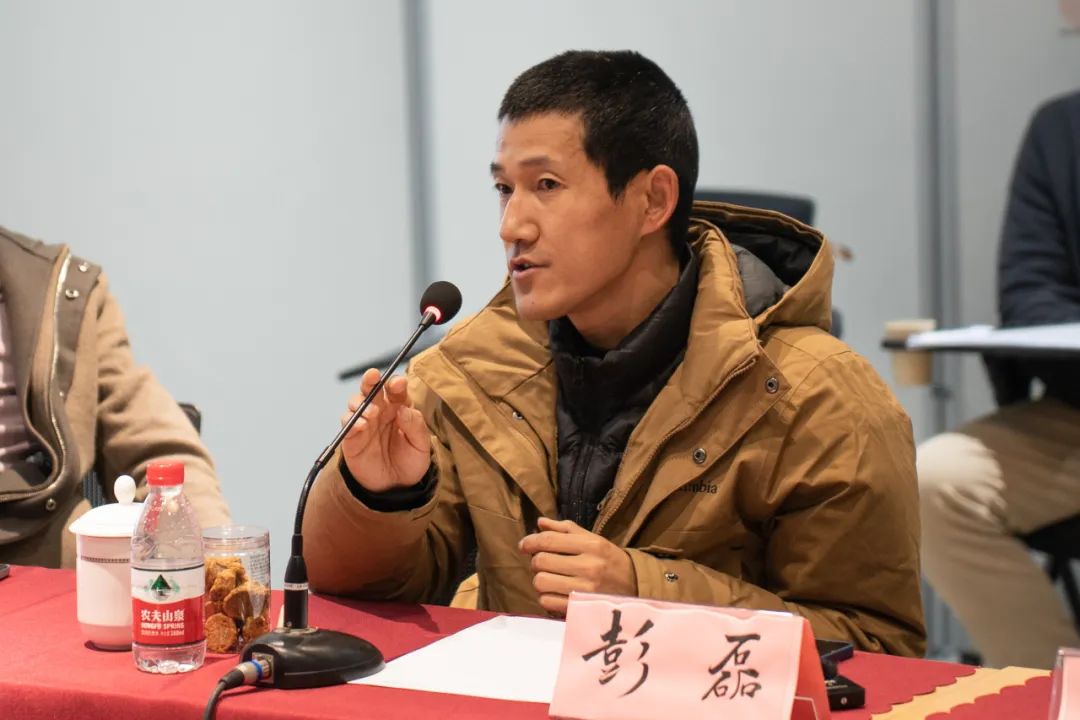
Peng Lei
From his own teaching and research experience, Professor Peng Lei of the Remin University of China first said that Plato's works are not doctrines, so they cannot offer definite ideas or philosophical system. Instead, they often make us realize that the original doctrines are already invalid. Such insoluble state is actually a huge elevation relative to the previous valid state, which has fundamentally helped us break our own narrow views and lead us to completeness. He thought that it is difficult to write on part of Plato's ideas as it will inevitably involve us in segmentation and technical analysis, but accessing from their part and combining the part and the whole are exactly the way to understand their entirety. Meanwhile, the understanding of Plato's work supports our research in other aspects, which can compensate for the limitation of the specialized studies. Plato's works can particularly temper one's understanding and critical thinking, enabling us to comprehend the various kinds of people in our life and their views as well as the causes.
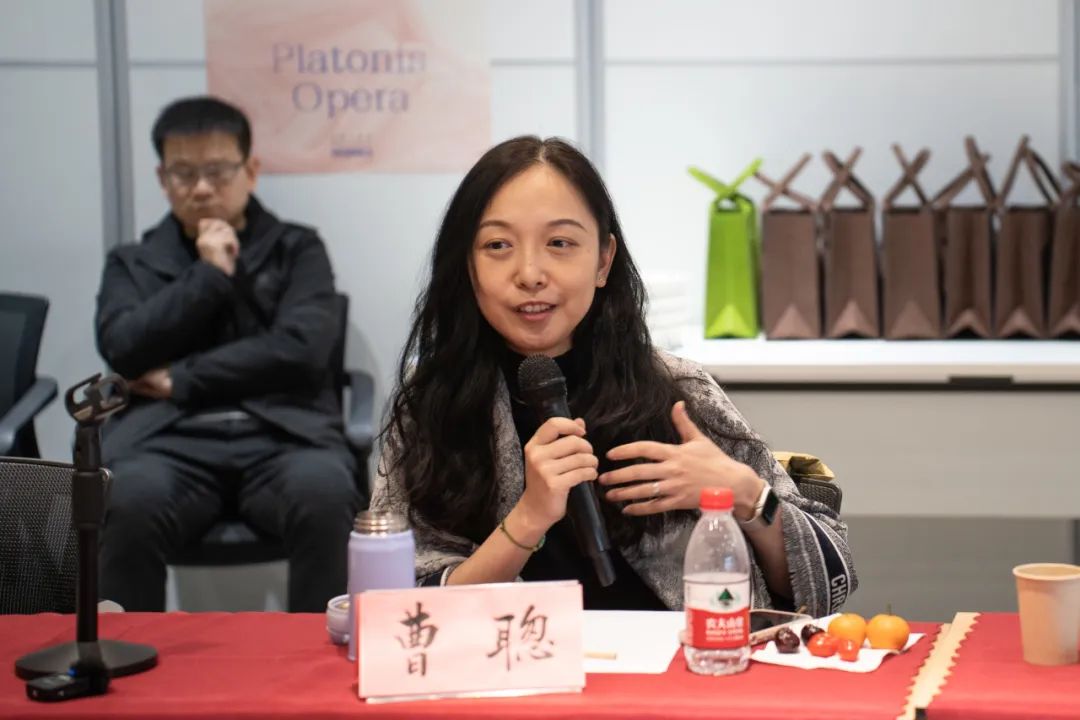
Cao Cong
Referring to his own translated work of Parmenides, Associate Professor Cao Cong at the Xi'an Jiaotong University said that the entire world has not just purity. Plato had best imitated the opinion world, leading people to truth. She pointed out that translation is, above all, the best way to study Plato as it directly gets in touch with his words and can avoid the problems of transliteration and those made by the later generations of philosophical tradition. On the other hand, translating classics bears a huge significance of civilization as translators need to pay attention to promotion of their translation. And the "Reading Plato" series promoted by the Huaxia Publishing House is a good supplement in this regard.
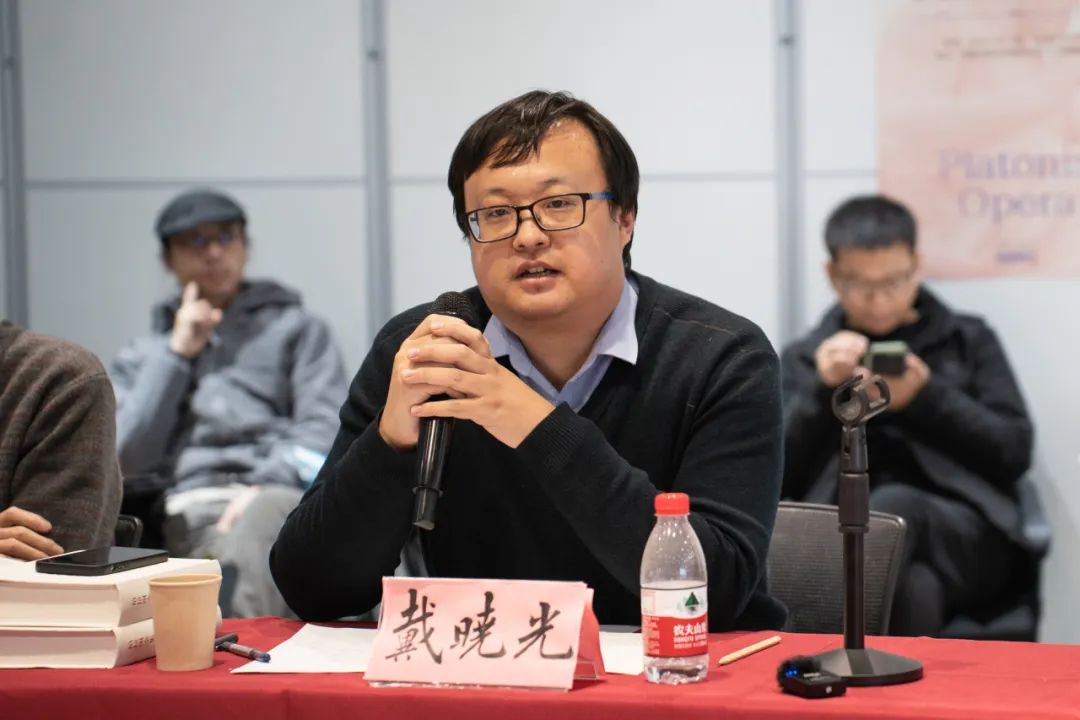
Dai Xiaoguang
Lecturer Dai Xiaoguang of the Renmin University of China discussed about how to usher students in Plato's thought from his own teaching experience. Taking the teaching of Apologia Socratis, Krito and Phaedrus as an example, he held that the philosophical event of the calm confrontation of Socrates with the Athens trials can guide students to touch vividly such a theoretical proposition on how Socrates dealt with the challenge of nihilism. Borrowing the metaphor of "the Ship of Theseus" in Phaedo, he believed "the Death of Logos'" stated by Socrates is more worth mourning than "the Death of Socrates". It meant that the Socrates' cause rested upon the disruption of the confrontation to "the Ship of Theseus" of the remarks/reason community, which was exactly the core concern of Socrates against nihilism. He proposed that Socrates' theory of eros and the theory of sailing were inherently related to such proposition of nihilism, so they deserve vivid and full explanations in the teaching of Plato's dialogue.
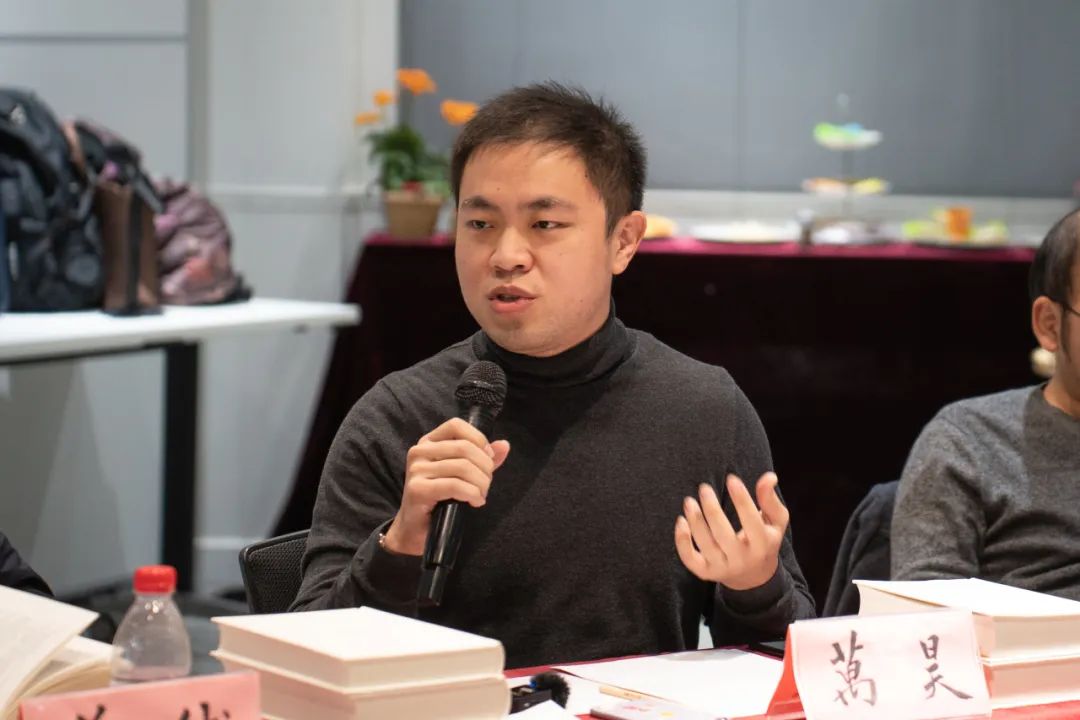
Wan Hao
Associate Research Fellow Wan Hao of Guangdong Academy of Social Sciences talked about the significance of the Chinese translation of Plato's works from the perspectives of readers and translators. As for readers, he thought whether they can get access to reliable classical texts in different periods of their life, especially during their growth, seeking for knowledge and longing for answers to their inquiries constitutes a major problem concerning their personal development and academic progress. As for translators, he thought that they can better understand the intricacy of Plato's works, and their relative grain has shown their excellence. He had tried to pursue entering "with oneself" and exiting "without oneself". In other words, one got access to the texts from "one's own" understanding to Plato's works, wishing to reach Plato's own understanding to his own works. The translation and comprehension of Plato's thought is endless and worth exploring forever.
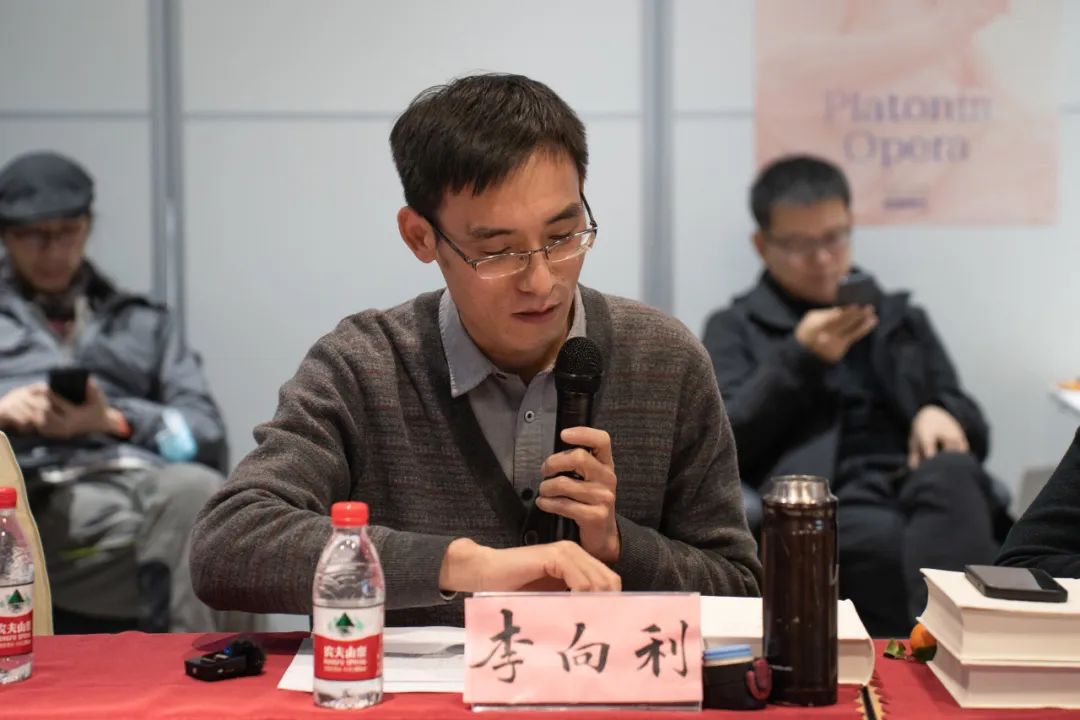
Li Xiangli
Lecturer Li Xiangli of Beijing International Studies University said that, compared with Plato's thought and philosophy, the literary feature of Plato's dialogue also born considerable importance. For instance, the status and features of the characters in the dialogues, the cause, theme and scenes, the narrative methods, and the rhetoric, irony and made-up stories in the dialogues, constitute fresh and visible flesh and blood of Plato's dialogue. Faced with different forked roads in the human world, Plato intentionally hid the edge of truth in that he sought for sowing seeds of wisdom on suitable soil. Meanwhile, he didn't forget to show concern for ordinary people's soul and guide those aspiring to take an upward road to recognize themselves and face integrity.
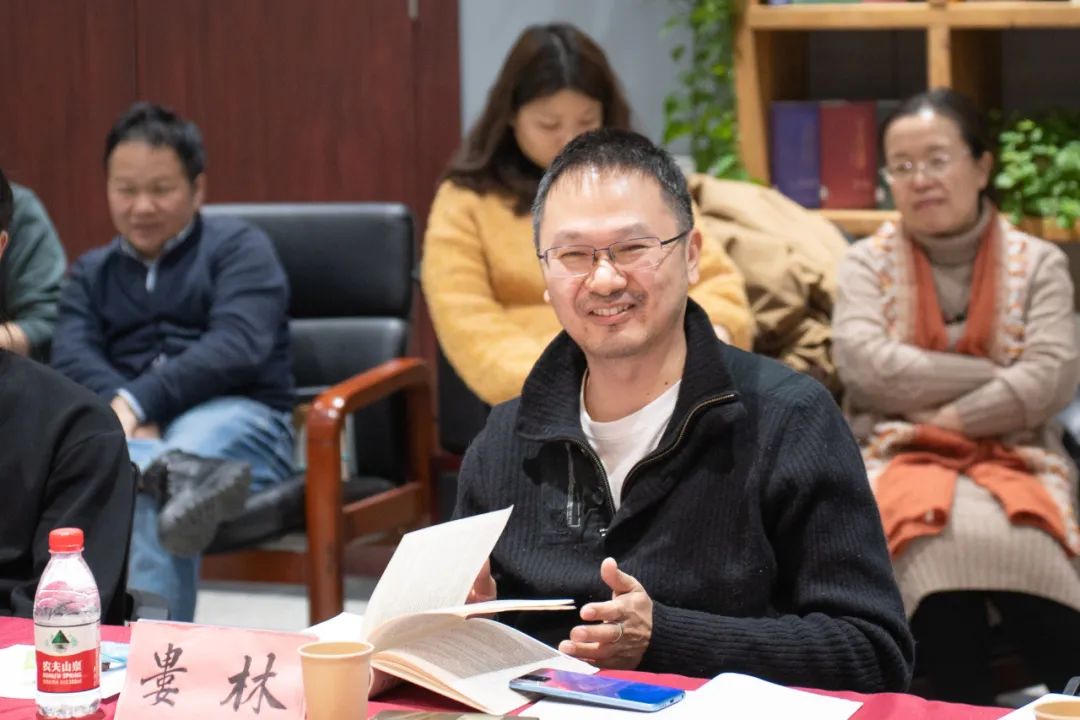
Lou Lin
Associate Professor Lou Lin of the Renmin University of China held that Plato displayed a big variety of types of souls, touching many fundamental problems of human life. In the meantime, Plato's texts have made an important influence on inspiring people's thinking in a unique textual form. Reading Plato's works brings incomparable happiness to the souls of philosophers. Citing a sentence from Socrates' Phaedo, he said those who loved wisdom all their lives would not have remorse in the face of death, instead they bore full expectations, by which she showed his admiration and recognition of the life of the philosophers.
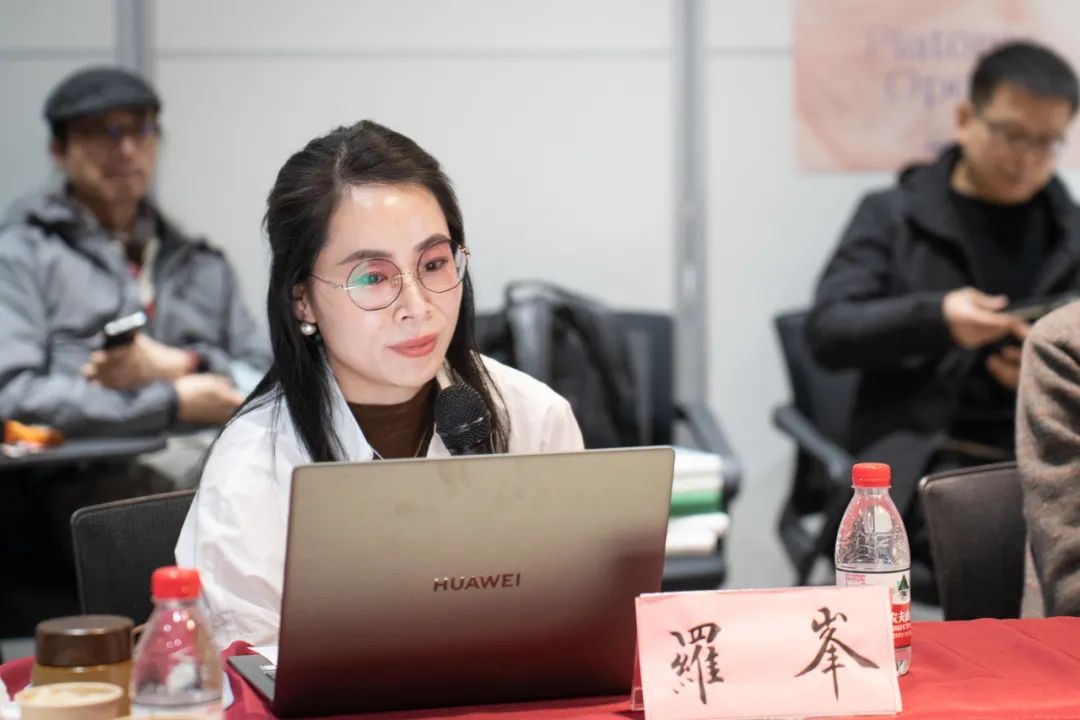
Luo Feng
Research Fellow Luo Feng of East China Normal University shared her thoughts about reading Plato's works. She said that despite mainly studying Plato's dramas over the past years, she could always get inspiration and nourishment from Plato's dialogue. And the philosophical nature of Plato's dialogue had also a relatively accessible side thanks to its vivid dramatic nature. When we started from these seemingly shallowest and subsidiary literary side, it could often enrich our reading experience. In the process of her translating Laches, she delved into the words and details of Plato's works, so she had deeply realized that Socrates in Plato's writing is not an arrogant "preacher", but a warm-hearted, intelligent and courageous human being who was never tired of teaching.
The closing ceremony
In the end, Professor Liu Xiaofeng made a summary. He first expressed that he was greatly impressed by the work of translation and research that all participants had done, then he made some comments to some issues proposed in the discussions. He emphasized that we can borrow the inspiration of Plato's way of thinking to make good reinterpretation of Chinese classics. He proposed that academic research is done both for oneself and others. In doing their own research, scholars should also bear some responsibility to carry on the traditional Chinese culture.
Finally, Professor Liu Xiaofeng laid a particular emphasis on the significance of the publishing work. He urged all participants to take the initiative in assisting others in teaching, writing and publishing, and correctly realize the stages and limitation of one's thinking so that they should keep improving themselves in their expressions, and contributing to the continuity of the Chinese civilizations.
The seminar came to a successful conclusion.
